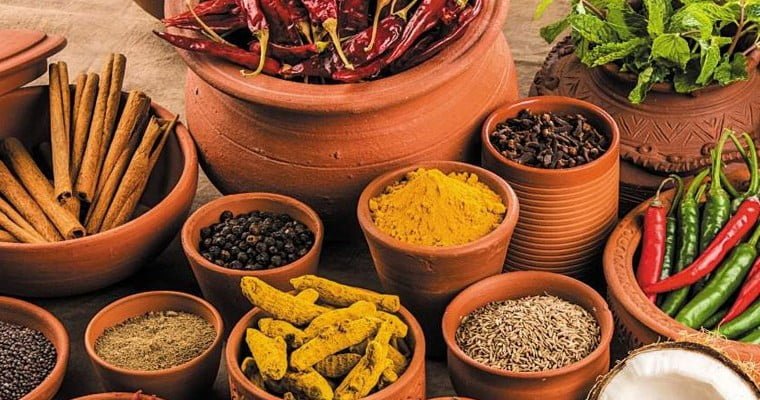In today's diligent customer landscape, the need for fairly sourced and sustainable items has actually surged. Private label food manufacturers have become innovators in this domain name, commonly working together with contract food manufacturers to spearhead sustainability and also liable sourcing campaigns. With a resolute commitment to ecological principles, exclusive label brands have made it their mission to provide sustainable, high-quality alternatives to consumers.
Private Label Food Manufacturers
Recently, private label food manufacturers, also called own brands or store brand names, have seen an amazing rise in appeal. These producers generate products marketed under the logo design of a store, grocer, or private entity. What sets private-label items apart is their capability to offer affordable prices without compromising on quality.

Contract Food Manufacturers
Several private-label food manufacturers join forces with agreement manufacturers to establish their line of product. Contract food manufacturers are specialists in creating foodstuff for private labels. This critical collaboration permits private label companies to tap into the know-how, sources, and also dedicated food production centers of their partners.
Sustainability at the Core
Private label food manufacturers utilize various strategies to boost sustainability within their supply networks:
Ethical Sourcing:
Exclusive label business are significantly devoted to sourcing components according to honest as well as fair trade requirements. This requires ensuring that producers and workers of basic materials, such as coffee beans, seasonings, or cacao, get reasonable payment for their efforts.
Neighborhood Sourcing:
Focusing on regional sourcing of components is one more characteristic of private-label food makers. This not just minimizes the carbon impact associated with transportation but also supports neighborhood farmers and also areas.
Organic Contents:
With the organic food market growing, private tags are reacting by integrating natural active ingredients into their line of product. Organic farming methods focus on soil wellness while eschewing artificial chemicals and also fertilizers.
Lasting Fish and shellfish:
Private Label Food Manufacturers are thorough in making sure that the seafood they utilize is sustainably gathered, sticking to guidelines set by companies like the Marine Stewardship Council, which advertises accountable fishing.
Decreased Food Waste:

Personal label business are actively working on lowering food waste by carrying out efficient manufacturing processes as well as developing products with longer service life. Some brand names are additionally partnering with food rescue organizations to donate surplus food to those in requirement.
Eco-Friendly Product Packaging as well as Initiatives
Sustainability efforts by private-label food makers extend beyond sourcing components to include product packaging as well as environmentally friendly efforts:
Lasting Packaging:
Personal label brands have accepted environment-friendly packaging alternatives, consisting of recyclable, biodegradable, or compostable products. Revamping packaging to reduce excess product and lower environmental impact is a leading concern.
Waste Decrease:
To decrease wastefulness, private-label food producers enhance item dimensions, lower excess product packaging, and check out ingenious product packaging solutions. Some brand names also urge clients to participate in recycling programs.
Power Efficiency:
Lots of private label makers are purchasing even more energy-efficient production plants, decreasing water usage, and embracing renewable resource resources to further decrease their environmental footprint.
Carbon Neutral Initiatives:
Some personal brand food producers are taking enthusiastic steps to accomplish carbon neutrality by offsetting their greenhouse gas exhausts through reforestation projects and also renewable energy debts.
Obstacles and the Roadway Ahead
Despite the significant strides made in sustainability and also liable sourcing, private-label food manufacturers face challenges. Balancing sustainability with cost-effectiveness can be a fragile act, often requiring concessions on sustainable components or the exploration of eco-friendly alternatives.
Nevertheless, the future of private-label food manufacturing holds great assurance. As consumer understanding and demand for lasting products continue to increase, private-label brand names as well as their agreement food manufacturing partners are likely to magnify their efforts. Cooperation with suppliers as well as investment in sustainable technological breakthroughs and transparency will be essential in shaping a sustainable future for the market.
Often Asked Concerns
Q1: What are private label food manufacturers?
Private label food manufacturers produce items sold under the logo design of a store, grocer, or exclusive entity. They offer competitively valued products without compromising on top quality.
Q2: Exactly how do private label food manufacturers advertise sustainability?
Private label food manufacturers advertise sustainability via moral sourcing, regional component purchase, using organic components, sustainable seafood practices, and initiatives to decrease food waste.
Q3: What eco-friendly packaging alternatives do private label brands make use of?
Exclusive label brands embrace eco-friendly packaging options such as recyclable, biodegradable, or compostable products. They additionally revamp packaging to lessen excess material and minimize ecological effect.
Q4: What challenges do private label food manufacturers encounter in sustainability initiatives?
Balancing sustainability with cost-effectiveness is a major obstacle for private label food manufacturers. This may call for compromises on sustainable components or the expedition of environment-friendly alternatives.
Final thought
Private label food manufacturers go to the forefront of the sustainability and also liable sourcing movement within the food market. Their commitment to moral sourcing, neighborhood procurement, organic ingredients, as well as lasting methods, as well as their devotion to environmentally friendly product packaging and waste reduction campaigns, show their determination to fulfill the needs of today's eco-conscious consumers.
Despite the challenges they deal with, private label food manufacturers are poised for an appealing future. With consumers progressively focusing on sustainability, the industry is most likely to witness even higher cooperation with vendors, financial investment in lasting innovations, as well as a commitment private label snack food manufacturers to openness. As we progress, private label food manufacturers will certainly remain to play a crucial duty in shaping a more lasting and also ethical food landscape for all.